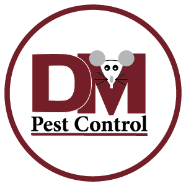Having wasps on your property can be a daunting and dangerous experience. If you see wasp buzzing around your property, it’s important to take action quickly to keep yourself and your family safe. Knowing what steps to take when dealing with wasp can help you resolve the issue promptly. In this article, we will discuss the different things you should do if you have wasps on your property so you can get rid of them safely and efficiently.
Identify the Type of Wasp
The first step towards solving the problem is identifying the type of wasp on your property. There are two main types of wasps: social wasps and solitary wasp. Social wasps, such as yellow jackets and paper wasp, live in large colonies and can be very aggressive if they feel their nest is threatened. Solitary wasp, conversely, are not aggressive and only sting if they feel threatened. If you’re dealing with social wasps, take extra caution when dealing with them. If you’re dealing with solitary wasps, they are less of a threat and can be left alone.
Some of the most common wasps include paper wasps, yellow jackets, hornets, and mud daubers. Paper wasps can be identified by their slender bodies and long wings. They typically build their nests under eaves or in trees and bushes. Yellow jackets are often confused for bees because they have black and yellow stripes on their body. Hornets are larger than other types of wasp and have a brownish-red coloration with white markings on their abdomen. Finally, mud daubers get their name from the fact that they build nests from mud pellets.
Locate the Wasp Nest
Once you’ve identified the type of wasp you’re dealing with, the next step is to locate the wasp nest. Social wasps build nests in trees, shrubs, and on buildings. The nests are made from paper-like materials and can be shaped like a ball or an umbrella. Solitary wasps, on the other hand, build individual nests in the ground, wood, or hollow stems. When locating a wasp nest, it’s essential to do so from a safe distance. Avoid getting too close to the nest, as the wasps may feel threatened and become aggressive.
Call a Professional
Are you dealing with wasps on your property? Before you attempt to remove them yourself, it’s crucial to understand the risks involved. Wasp are aggressive insects that can sting multiple times, causing pain and potentially dangerous allergic reactions. If you’re not experienced in removing wasp nests, it’s best to call a professional pest control service.
When it comes to removing wasp, safety should always be the top priority. Professionals have the necessary training and equipment to safely remove wasp nests without putting themselves or others at risk. They also know how to identify different types of wasps and their nesting habits, allowing them to target the problem effectively.
Attempting to remove a wasp nest without proper training or equipment can lead to injury. If not correctly handled, remaining larvae or eggs inside the nest could hatch and cause another infestation down the line.
Use Caution When Removing the Nest
If you decide to remove the nest yourself, use caution. Wear protective clothing, including long sleeves, pants, gloves, and a hat with a veil. Cover your face and neck as much as possible to avoid getting stung. When removing the nest, do so at night when the wasps are less active. Use a pesticide specifically designed for wasps and spray the nest thoroughly. After the nest has been treated, wait a few days before removing it. This will allow any remaining wasp to die off.
Prevent Future Infestations
After you’ve dealt with a wasp problem, you must take steps to prevent future infestations. First, seal cracks or holes in your home’s exterior to prevent wasps from entering. Keep garbage cans closed and clean to avoid attracting wasps. If you have fruit trees, regularly pick up fallen fruit to avoid attracting wasps. It’s also a good idea to plant herbs and flowers that repel wasps, such as mint, basil, and marigolds. These plants can help keep wasp away from your property.
In conclusion, dealing with a wasp infestation can be a challenging task, but with the right approach, it can be done safely and effectively. If you’re uncomfortable dealing with wasp alone, call a professional pest control company like DM Pest Control. They have the expertise needed to help your yard become a safe, wasp-free place.

